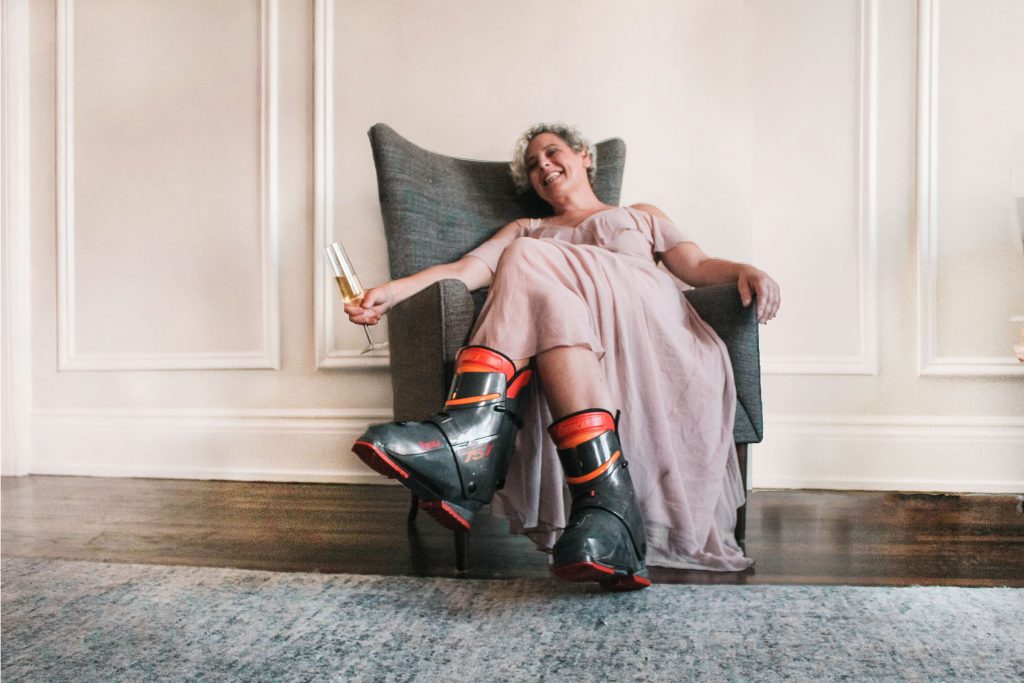Interview with Stacy Ross
Cutting Ball sits down with actor Stacy Ross* to discuss revisioning the classic play Miss Julie in the world premiere of Megan Cohen’s Free For All.
2019 SEPTEMBER 1, 2019 by Estela Hernandez
.

Since “Free For All” is based in San Francisco, what is somewhere fun in the city that you enjoy?
I like going out to Ocean Beach. I think it’s really pretty, though it’s kind of weird living next to a beach you don’t feel comfortable getting into. I grew up in Southern California, where you can just walk right in.
Hidden gem: Wild Side West in Bernal Heights. It’s essentially in an old Victorian and the backyard is just tricked out. It started with two “out” lesbians in 1962. They’ve passed on but another lady bought it and kept it going. It’s a pretty cool place.
What made you want to do this play, in spite of your dislike for Strindberg’s Miss Julie?
Truly the combination of these women. I met Megan doing a project at the Ground Floor at Berkeley Rep a couple years ago. You know, I can’t imagine Megan ever makes a bad impression. I really liked her so much, I though her writing was so smart, she really is offbeat, and by that I mean unique.
I worked with Ariel in a workshop we did last year called Thunder Bodies, so when she wrote me and said “Are you interested in doing a Miss Julie thing”, you know I didn’t even think that I’m completely an inappropriate age. I mean we must have done like 3 workshops before I said wait a minute, isn’t Julie usually like 25? It’s not uncommon for a playwright to say, “I don’t care about an actors age it’s just a reading or a workshop, it would be really helpful to just have an actor with chops doing it”. Then when you think about producing it, clearly you’ll replace me with a 23 year old you know.
But truly, as I said to you earlier, it’s just the combination of these two women on a play [August Strindberg’s Miss Julie] that is so stupidly misogynistic was just tantalizing.
Just to have a female envision it, just to have a female direct, is going to be a different thing. But then to re-envision it and to explain to people that is not an adaptation, it’s its own thing. The original Miss Julie is just this springboard and — between those two ladies — they’re kind of the most fiercely creative women I’ve met.
What is one of your favorite things about this new Julie?
That her flaws and her fables are truer to a real person then what Mr Strindberg came up with.
To him it’s all, “Oh you know how she is during that time of the month” so on the second page he tells you that she’s crazy and irrational. She’s already completely marginalized before the play even happens, so how can you trust her? How can you like her? How can she be a full human being? It’s okay not to like her, but shouldn’t it be for the reason that we see a whole human being that we just can’t get behind instead of just some frightened man’s projection about probably the woman that didn’t want to go out with him?
.
What is one of your least favorite things about Miss Julie?
Hm. I’m going to have to think about things I like less about her, because I like all the qualities in her. To like her mean streak doesn’t mean I approve of being mean to people, but — as a character, as a human being — it makes her real. So I like her mean streak.
Maybe what I like least is her ignorance of certain things — definitely class related — and then her ability to, sort of, just . . . tune it out. When she does have a realization, sometimes she doesn’t want to pay attention to it. The privilege is real.
For Julie, its like this is the weekend that its happening, this is the weekend that the world is ending. So she has this much time to maybe fit somewhere, maybe find something true and real, or at least interesting enough to her to make her feel better. Maybe there’s somewhere she belongs.
